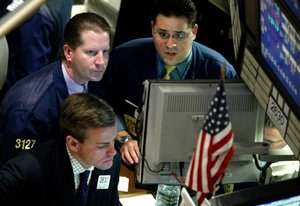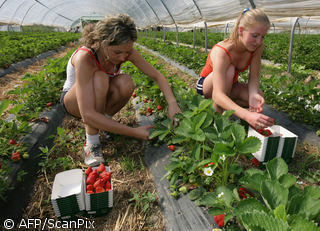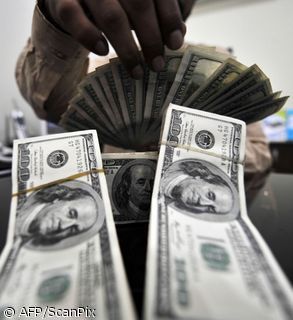Infrastructure is lacking despite economic growth in largest of nations about to join European Union
Published:
29 March 2004 y., Monday
Just weeks before Poland joins the European Union on May 1, Warsaw struts a new prosperity. But all is not what it seems: Despite strong economic growth driven by exports, the country faces high unemployment, political uncertainty and deeply rooted corruption.
Paradoxes abound. Those who can afford new Volvos or BMWs must still drive them along potholed roads. The hip cafes that draw fashionable young people are often housed in drab Stalinist-era concrete block buildings.
And many of the luxury goods for sale in the bright new shops and malls remain off-limits to many in Poland, where only 1 percent earn above $18,000 a year.
Such contrasts exist in all eight former communist states due to join the EU, but the stakes are highest in Poland, the largest of the new countries.
With more than 38 million people, Poland accounts for 52 percent of the new EU citizens. Poles will be 8.4 percent of the union’s population, so its economy performance will have a major impact on the rest of the bloc, the world’s largest economic union.
Analysts say that Poland’s greatest economic strength is the many modern, efficient companies that have made the transition and are already selling successfully to EU countries.
Ten years ago, Polish exports consisted mostly of raw products like coal, sulfur, apples and meat. Today, exports also include higher-value goods like precision surgical instruments, pharmaceuticals and car engines.
Šaltinis:
detnews.com
Copying, publishing, announcing any information from the News.lt portal without written permission of News.lt editorial office is prohibited.
The most popular articles
 In another move to strengthen the financial system, the Commission is proposing controls on credit rating agencies - private companies that evaluate financial risks for investors.
more »
In another move to strengthen the financial system, the Commission is proposing controls on credit rating agencies - private companies that evaluate financial risks for investors.
more »
 Monday 10 November saw a large report land on the desk of MEPs in the Budgetary Control Committee.
more »
Monday 10 November saw a large report land on the desk of MEPs in the Budgetary Control Committee.
more »
 EU wants G20 meeting to pave the way for reform of the international financial system.
more »
EU wants G20 meeting to pave the way for reform of the international financial system.
more »
 New Yorkers reflect on the election of Barack Obama as the 44th President of the United States.
more »
New Yorkers reflect on the election of Barack Obama as the 44th President of the United States.
more »
 The ability of the EU's common agriculture policy (CAP) to cope with the challenges of affordable food and climate change was discussed in Brussels 3-4 November.
more »
The ability of the EU's common agriculture policy (CAP) to cope with the challenges of affordable food and climate change was discussed in Brussels 3-4 November.
more »
 European Union economic growth should be 1.4% in 2008, half what it was in 2007, and drop even more sharply in 2009 to 0.2% before recovering gradually to 1.1% in 2010 (1.2%, 0.1% and 0.9%, respectively, for the euro area).
more »
European Union economic growth should be 1.4% in 2008, half what it was in 2007, and drop even more sharply in 2009 to 0.2% before recovering gradually to 1.1% in 2010 (1.2%, 0.1% and 0.9%, respectively, for the euro area).
more »
 There are an estimated 4-8 million immigrants working illegally in the European Union.
more »
There are an estimated 4-8 million immigrants working illegally in the European Union.
more »
 Hit by economic turmoil and the sharp global downturn, growth in the EU slows almost to a halt.
more »
Hit by economic turmoil and the sharp global downturn, growth in the EU slows almost to a halt.
more »
 The top priority is to cushion the impact of the financial crisis on jobs, purchasing power and prosperity of EU citizens.
more »
The top priority is to cushion the impact of the financial crisis on jobs, purchasing power and prosperity of EU citizens.
more »
 The International Monetary Fund has approved short-term financing to help emerging market economies weather the global financial storm.
more »
The International Monetary Fund has approved short-term financing to help emerging market economies weather the global financial storm.
more »